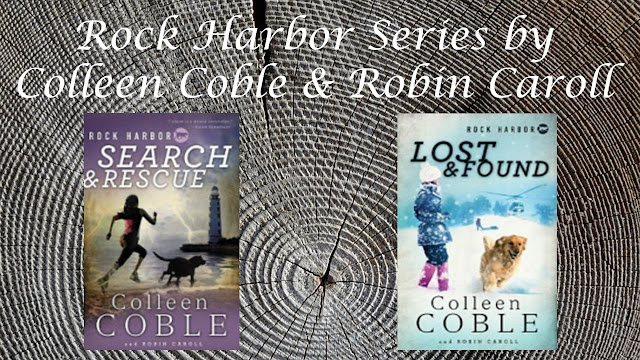Blogging Through the Alphabet - Letter F
This week Blogging Through the Alphabet is focusing on the Letter F. Following my theme of Biblical terms, the word I have chosen to study is Fool. You likely were expecting me to say something like faith. The main story I will be utilizing for this post is the story of Abigail from 1 Samuel 25 in which her husband, Nabal, acts like the proverbial fool and it has a valuable lesson from which we all can learn.
Merriam-Webster Dictionary defines the word fool as 1. a person lacking in judgement or prudence 2. one who is victimized or made to feel foolish 3. a harmlessly deranged person or one lacking in common powers of understanding. Nabal was definitely lacking judgement and he was obviously a deranged person lacking common powers of understanding. In fact, Nabal's name literally means fool, foolish, and senseless in its Hebrew form. (
Hitchcock's Bible Names Dictionary) In contrast, his wife Abigail is wise, humble, and a godly woman. Abigail's name in Hebrew translates to the father's joy. (
Hitchcock's Bible Names Dictionary) She, in deed, was her Heavenly Father's joy.
 |
Picture of Abigail humbling herself before David
|
The Story:
The best place to start is with the story of Abigail to give us a foundation to build upon. The story of David, Nabal, and Abigail is found in
1 Samuel 25. David is in the wilderness with his men trying to evade King Saul who has gone insane and wants to kill David. Learning that Nabal, a wealthy man is celebrating the shearing of his sheep, David sends his servants to request food. Sadly, Nabal shows what a fool he is and denies David and his men provisions despite the fact that David is kin and albeit that David and his men had prevented bandits in the area from raiding Nabal. Nabal's refusal angers David and he orders his men to prepare for battle with this ignorant, arrogant man. Knowing what the master had done and fearing David's reaction, a servant runs to Nabal's wife, Abigail and tells her of her husband's folly. Abigail being sage and godly, orders the servants to gather the best provisions and send them in abundance to David and his men while she prepared to follow and beg for mercy. Abigail's swift actions, her willing sacrifice, and her humbleness win David's favor.
Looking Deeper:
Instead of showing his gratitude to David and his men for keeping bandits from stealing from him, Nabal hurled insults at David and refused him food. (
International Standard Bible Encyclopedia) Nabal could have easily provided provisions as he was a very wealthy man. He owned 3,000 sheep and 1,000 goats. (
Geneva Study Bible) Nabal was known for being wicked, evil, a liar, a drunkard, and a cheat in his business dealings. Nabal, in his foolishness and haste, made very poor choices. (
Easton's Bible Dictionary) Because of his arrogance and ignorance, Nabal almost lost not only his own life but cost the lives of all of the males living under his roof.
Abigail's Wisdom:
First, Abigail didn't inform her husband of her plans to provide David and his men with the provisions they had requested. She knew he was a sinful, wicked, prideful man who wouldn't approve of her plan. (Geneva Study Bible) Abigail had the servants gather fish, bread, cakes of raisins and figs (sweet meats) and two casks of wine even though her husband had denied them mere water. Abigail gathered the best she had to offer them and not mere leftovers. Furthermore, she sent it in abundance. (
Matthew Henry Commentary of the Whole Bible Complete) Abigail sends her servants ahead of her with the food. When she arrives, she falls prostrate at David's feet and begged him for mercy. Her demeanor is submissive. (Matthew Henry Commentary) Abigail's wisdom and kindness soothe David's anger and won her husband reprieve from David's wrath. (International Standard Bible Encyclopedia) Abigail was willing to take Nabal's punishment. She was willing to sacrifice herself for her husband's sins. (
Wesley's Explanatory Notes)
What Happens Next:
Abigail returns home to find her husband drunk and beyond comprehension. When he is awake the next morning, Abigail tells Nabal what she did and how her actions have sparred his life. Nabal is stricken with fear by the mere thought that he narrowly escaped death and goes into a comatose state for tens days before he finally dies. After Nabal's death, David took Abigail as his wife. (International Standard Bible Encyclopedia) David took Abigail as his wife not only because he was taken by her outward beauty but also by her godliness, wisdom, and humility. (Geneva Study Bible)
What the Bible Says About Fools and Folly:
This post is being linked to Blogging Through the Alphabet. Sponsored by my dear friends at
Hopkins Homeschool and
A Net In Time. Please stop by their blogs and read some of their excellent posts as well as some of the other blogs linked up to Blogging Through the Alphabet.


















































